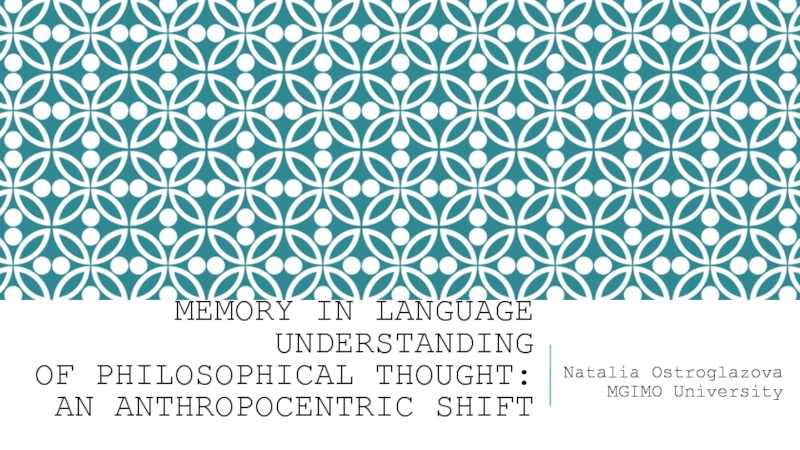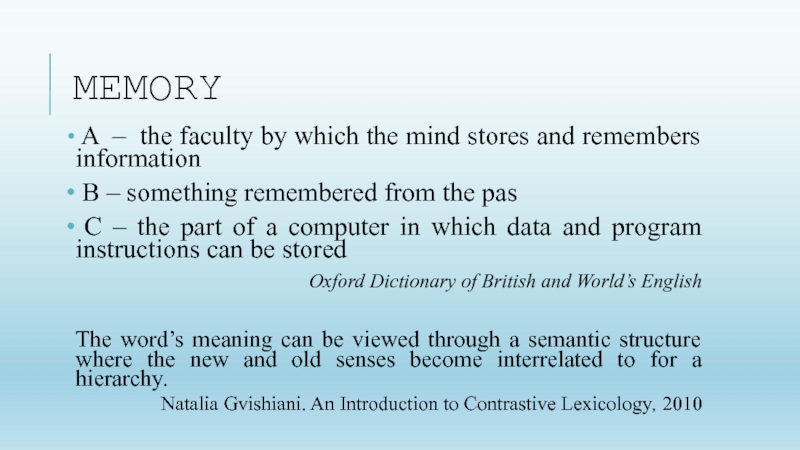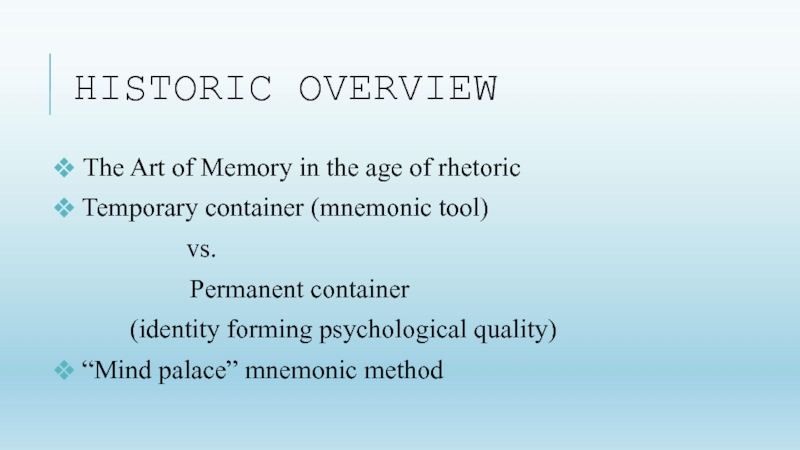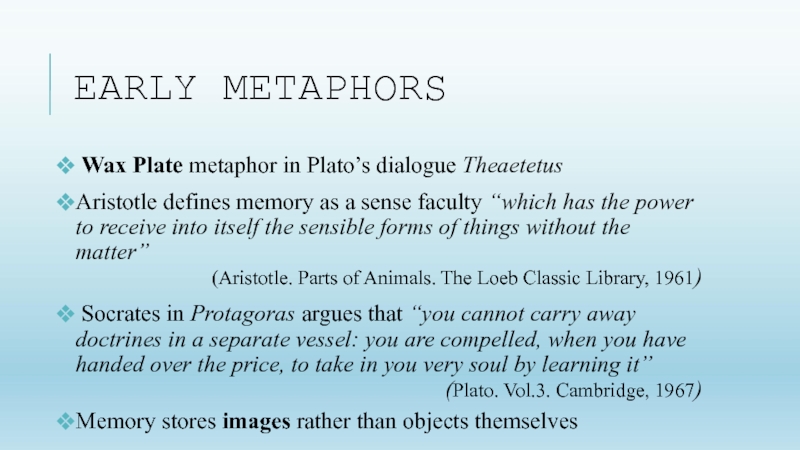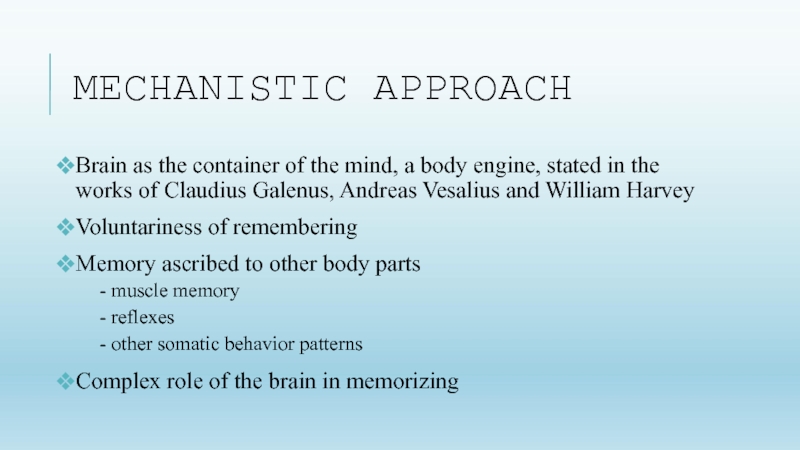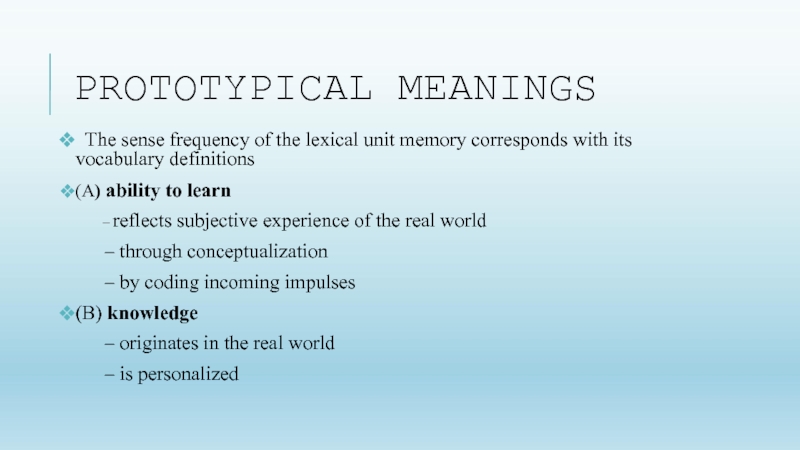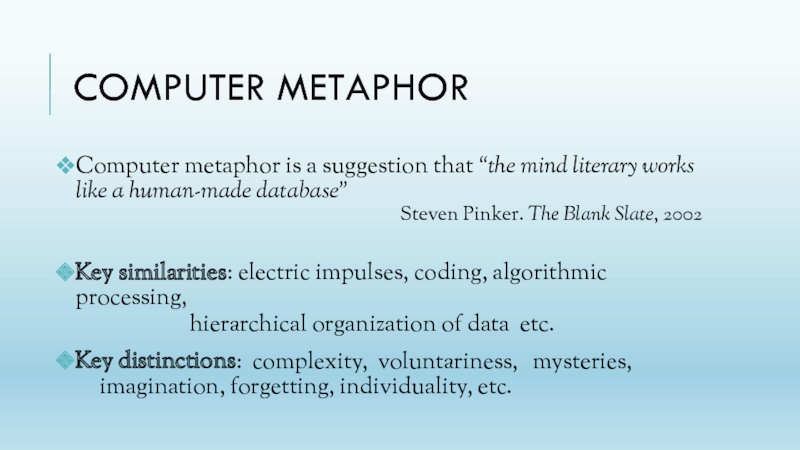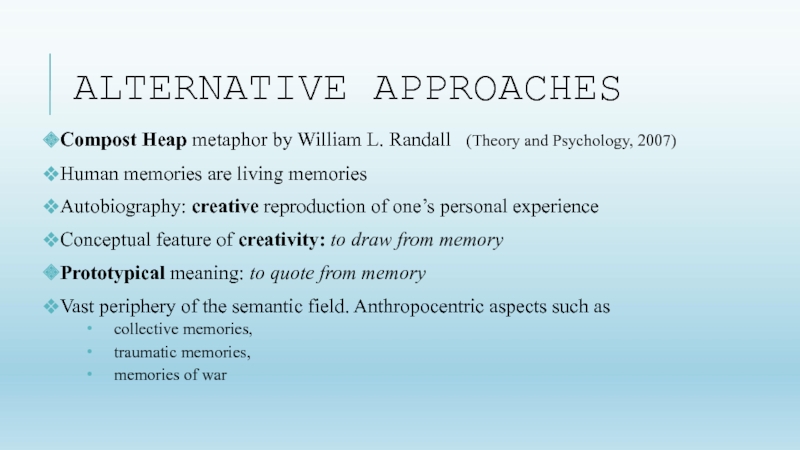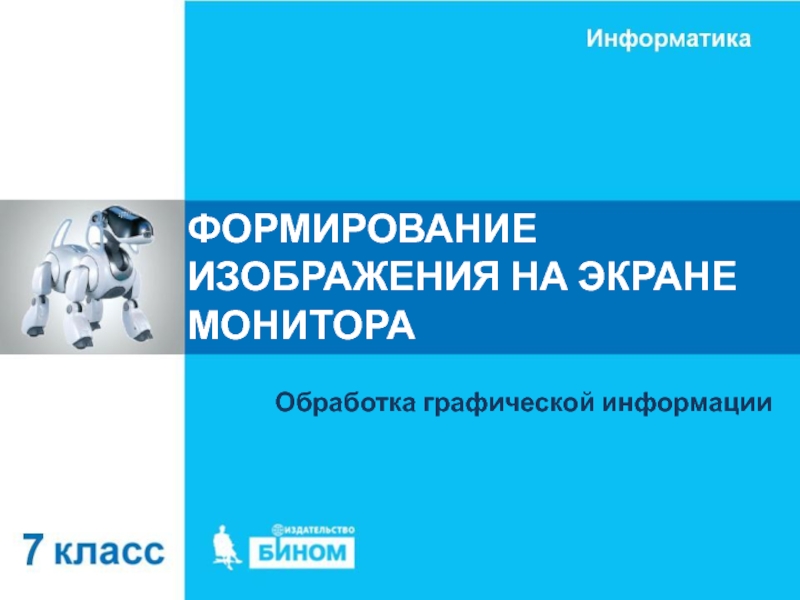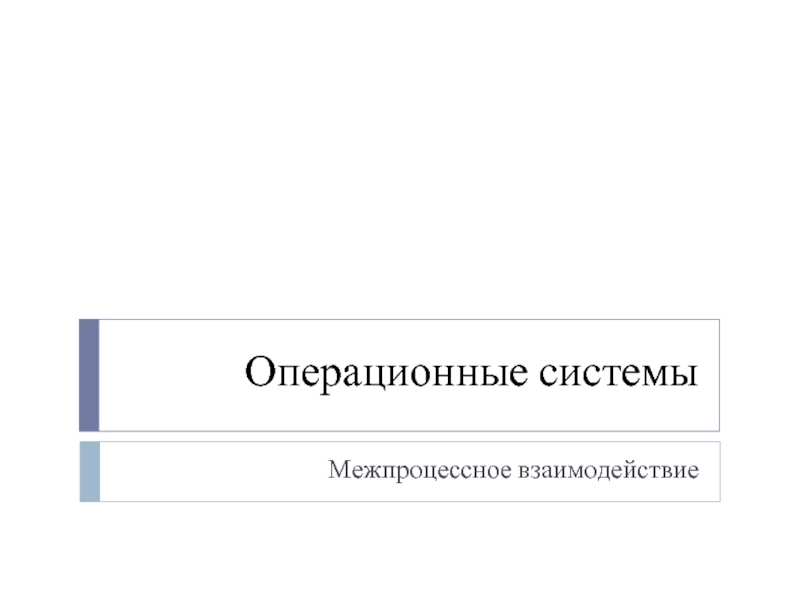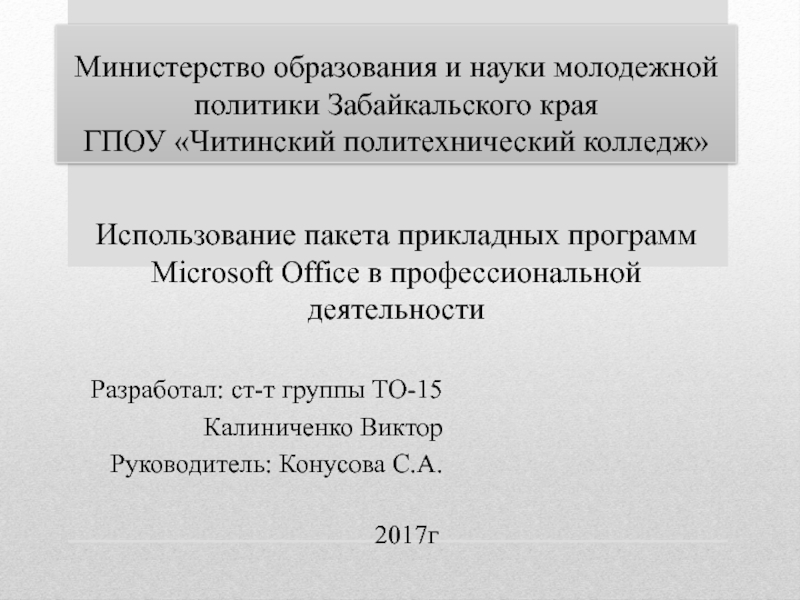- Главная
- Разное
- Дизайн
- Бизнес и предпринимательство
- Аналитика
- Образование
- Развлечения
- Красота и здоровье
- Финансы
- Государство
- Путешествия
- Спорт
- Недвижимость
- Армия
- Графика
- Культурология
- Еда и кулинария
- Лингвистика
- Английский язык
- Астрономия
- Алгебра
- Биология
- География
- Детские презентации
- Информатика
- История
- Литература
- Маркетинг
- Математика
- Медицина
- Менеджмент
- Музыка
- МХК
- Немецкий язык
- ОБЖ
- Обществознание
- Окружающий мир
- Педагогика
- Русский язык
- Технология
- Физика
- Философия
- Химия
- Шаблоны, картинки для презентаций
- Экология
- Экономика
- Юриспруденция
Memory in language understanding of philosophical thought: an anthropocentric shift презентация
Содержание
- 1. Memory in language understanding of philosophical thought: an anthropocentric shift
- 2. MEMORY A – the faculty by
- 3. HISTORIC OVERVIEW The Art of Memory
- 4. EARLY METAPHORS Wax Plate metaphor in
- 5. MECHANISTIC APPROACH Brain as the container of
- 6. PROTOTYPICAL MEANINGS The sense frequency of
- 7. COMPUTER METAPHOR Computer metaphor is a suggestion
- 8. ALTERNATIVE APPROACHES Compost Heap metaphor by William
- 9. THANK YOU!
Слайд 1MEMORY IN LANGUAGE UNDERSTANDING
OF PHILOSOPHICAL THOUGHT:
AN ANTHROPOCENTRIC SHIFT
Natalia Ostroglazova
MGIMO University
Слайд 2MEMORY
A – the faculty by which the mind stores and
remembers information
B – something remembered from the pas
C – the part of a computer in which data and program instructions can be stored
Oxford Dictionary of British and World’s English
The word’s meaning can be viewed through a semantic structure where the new and old senses become interrelated to for a hierarchy.
Natalia Gvishiani. An Introduction to Contrastive Lexicology, 2010
B – something remembered from the pas
C – the part of a computer in which data and program instructions can be stored
Oxford Dictionary of British and World’s English
The word’s meaning can be viewed through a semantic structure where the new and old senses become interrelated to for a hierarchy.
Natalia Gvishiani. An Introduction to Contrastive Lexicology, 2010
Слайд 3HISTORIC OVERVIEW
The Art of Memory in the age of rhetoric
Temporary container (mnemonic tool)
vs.
Permanent container
(identity forming psychological quality)
“Mind palace” mnemonic method
Слайд 4EARLY METAPHORS
Wax Plate metaphor in Plato’s dialogue Theaetetus
Aristotle defines memory
as a sense faculty “which has the power to receive into itself the sensible forms of things without the matter”
(Aristotle. Parts of Animals. The Loeb Classic Library, 1961)
Socrates in Protagoras argues that “you cannot carry away doctrines in a separate vessel: you are compelled, when you have handed over the price, to take in you very soul by learning it”
(Plato. Vol.3. Cambridge, 1967)
Memory stores images rather than objects themselves
(Aristotle. Parts of Animals. The Loeb Classic Library, 1961)
Socrates in Protagoras argues that “you cannot carry away doctrines in a separate vessel: you are compelled, when you have handed over the price, to take in you very soul by learning it”
(Plato. Vol.3. Cambridge, 1967)
Memory stores images rather than objects themselves
Слайд 5MECHANISTIC APPROACH
Brain as the container of the mind, a body engine,
stated in the works of Claudius Galenus, Andreas Vesalius and William Harvey
Voluntariness of remembering
Memory ascribed to other body parts
- muscle memory
- reflexes
- other somatic behavior patterns
Complex role of the brain in memorizing
Voluntariness of remembering
Memory ascribed to other body parts
- muscle memory
- reflexes
- other somatic behavior patterns
Complex role of the brain in memorizing
Слайд 6PROTOTYPICAL MEANINGS
The sense frequency of the lexical unit memory corresponds
with its vocabulary definitions
(A) ability to learn
– reflects subjective experience of the real world
– through conceptualization
– by coding incoming impulses
(B) knowledge
– originates in the real world
– is personalized
(A) ability to learn
– reflects subjective experience of the real world
– through conceptualization
– by coding incoming impulses
(B) knowledge
– originates in the real world
– is personalized
Слайд 7COMPUTER METAPHOR
Computer metaphor is a suggestion that “the mind literary works
like a human-made database”
Steven Pinker. The Blank Slate, 2002
Key similarities: electric impulses, coding, algorithmic processing,
hierarchical organization of data etc.
Key distinctions: complexity, voluntariness, mysteries, imagination, forgetting, individuality, etc.
Steven Pinker. The Blank Slate, 2002
Key similarities: electric impulses, coding, algorithmic processing,
hierarchical organization of data etc.
Key distinctions: complexity, voluntariness, mysteries, imagination, forgetting, individuality, etc.
Слайд 8ALTERNATIVE APPROACHES
Compost Heap metaphor by William L. Randall (Theory and
Psychology, 2007)
Human memories are living memories
Autobiography: creative reproduction of one’s personal experience
Conceptual feature of creativity: to draw from memory
Prototypical meaning: to quote from memory
Vast periphery of the semantic field. Anthropocentric aspects such as
collective memories,
traumatic memories,
memories of war
Human memories are living memories
Autobiography: creative reproduction of one’s personal experience
Conceptual feature of creativity: to draw from memory
Prototypical meaning: to quote from memory
Vast periphery of the semantic field. Anthropocentric aspects such as
collective memories,
traumatic memories,
memories of war
